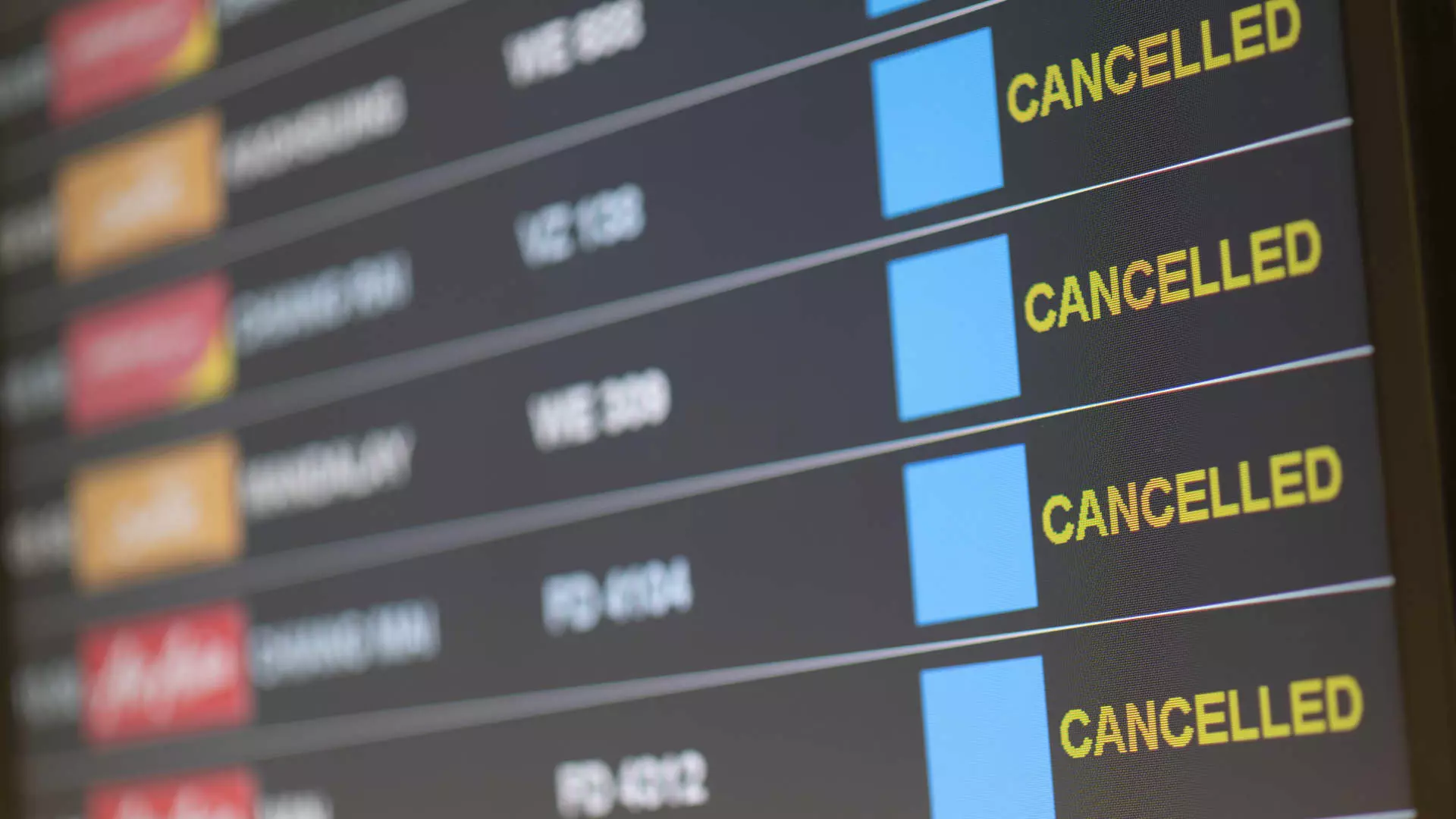Traveling during the summer months can be an exciting experience, but it can also come with its fair share of challenges. Flight delays and cancellations are not uncommon, especially during the peak travel season from mid-June to the end of August. However, when it comes to reimbursement for such disruptions, travelers may find themselves at a disadvantage. According to experts, airlines in the U.S. are not obligated to provide compensation for delays and cancellations, unless it is due to specific circumstances outlined in their policy.
The summer travel season brings with it a higher volume of passengers and flights, as millions of Americans head out on vacation. From bad weather conditions to increased airspace usage, there are numerous factors that contribute to flight disruptions during this time. In fact, bad weather alone accounted for 66% of total flight-delay minutes in 2024, according to FAA data. With more planes in the skies and a surge in travel activity, passengers may face delays and cancellations that can impact their travel plans.
While airlines are not required to provide compensation for delays or cancellations, there is one overarching duty that carriers must fulfill. According to the U.S. Department of Transportation, airlines owe passengers a refund of the ticket price and fees if they cancel a flight or make a „significant change“ to the itinerary. This refund obligation applies to all passengers, regardless of whether they purchased a refundable or non-refundable ticket. Additionally, starting Oct. 28, airlines will have to promptly pay refunds to customers for delays of three hours or more on domestic flights and six hours or more on international flights.
Each airline has its own set of compensation policies for delays and cancellations, which can vary widely. While customers are entitled to a refund for significant changes, airlines may offer additional benefits such as rebooking on the same airline, free meals, or hotel stays for extended delays. However, these policies only apply to „controllable“ delays caused by airline operations, not factors beyond their control like bad weather. Passengers flying internationally may have more rights under the laws of the country they are traveling to or from, such as in the case of flights to and from Europe covered by EU regulations.
To reduce the likelihood of experiencing a flight disruption and to better cope with delays or cancellations, experts offer the following tips:
– Book the first flight of the day to avoid delays common in the later part of the day.
– Opt for direct flights instead of connecting flights to lower the risk of disruptions.
– Build in extra time for layovers to accommodate potential delays.
– Travel on less busy days like weekdays to avoid peak travel times.
– Pack essential items in a carry-on bag for easy access during delays or cancellations.
– Stay proactive while waiting by contacting airline representatives and customer support simultaneously.
While flight delays and cancellations are an unfortunate reality of air travel, understanding airline policies, being prepared, and following expert tips can help passengers navigate these challenges more effectively. By staying informed and proactive, travelers can minimize the impact of disruptions and make the most of their summer travel adventures.


Napsat komentář